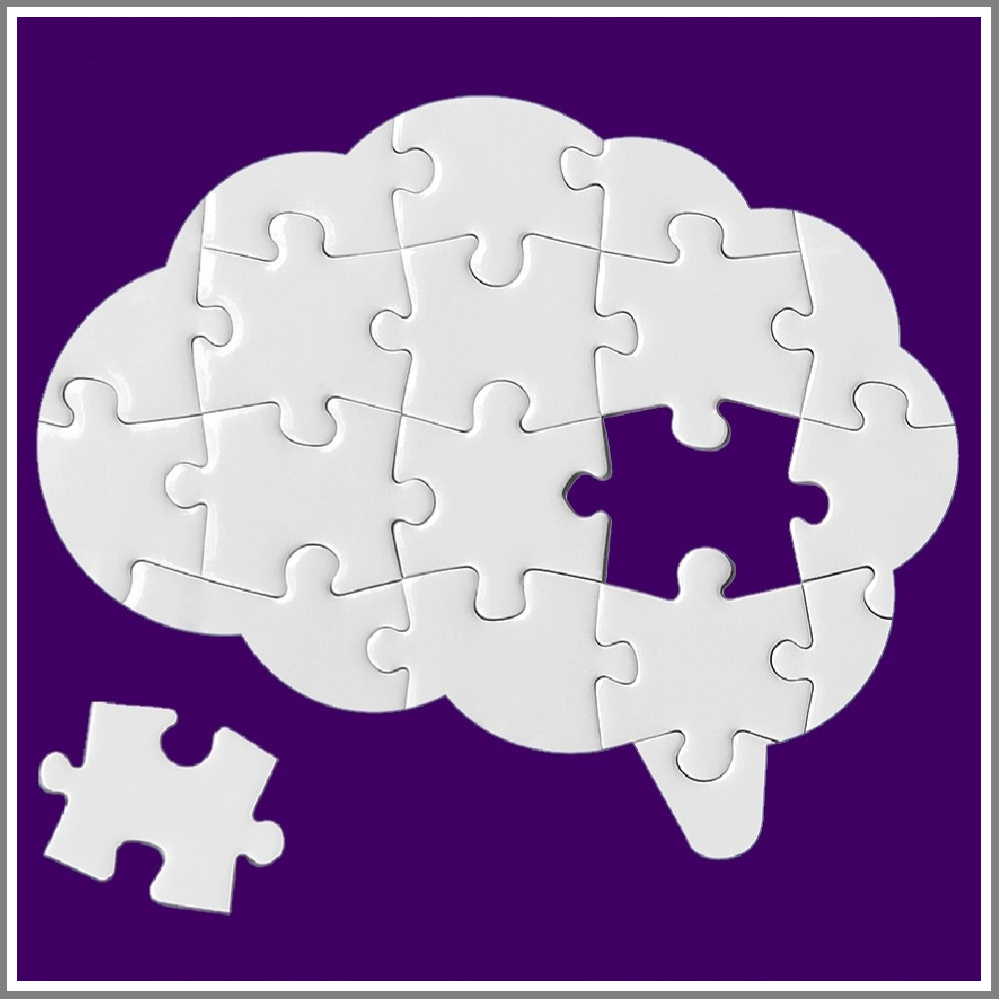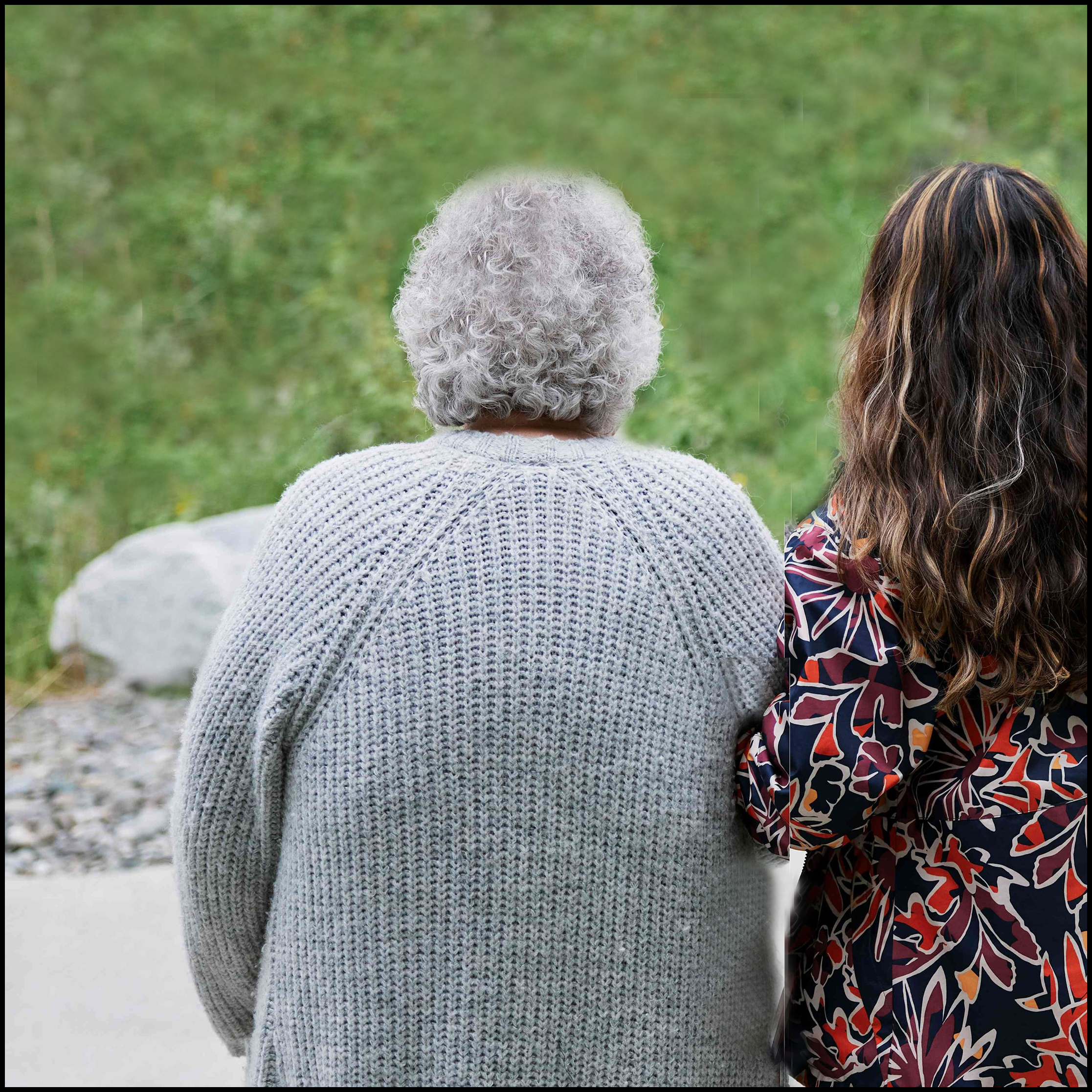About Alzheimer's and Dementia

This page provides a basic overview of Alzheimer’s disease and other types of dementia. For more in-depth information, visit the National Institute on Aging.
Dementia is a term for conditions that affect memory, thinking, and behavior. These changes can make daily life and relationships harder and more challenging to navigate familiar tasks and environments.
Below, you will find information to increase knowledge of the disease, including its causes, risk factors, and diagnosis.
While there is no cure for dementia, early detection and treatment can slow its progress and improve quality of life.

Types of Dementia

Alzheimer’s disease is the most common type of dementia. Alzheimer's accounts for 60-80% of dementia cases. Other types of dementia include:
- Vascular Dementia: Caused by reduced blood flow to the brain, often after a stroke
- Lewy Body Dementia: Linked to abnormal protein buildup in the brain
- Frontotemporal Dementia (FTD): Affects language and personality
- Mixed Dementia: A combination of different dementia types
The National Institute on Aging has several infographics to help understand the different types of dementia available for downloading.
Additional Resources
For more tools and information, explore our Training and Education and Other Resources pages.
Together, we can build awareness and improve outcomes for those living with dementia and their caregivers.
Causes and Risk Factors

Dementia occurs when brain cells are damaged, often due to age-related changes, genetics, or underlying conditions.
Risk factors include:
- Age: Dementia is most common in people over 65
- Common Conditions: Diabetes, high blood pressure, and head injuries are associated with higher risk of dementia
- Health Habits: Smoking, poor diet, and lack of physical activity may increase dementia risk
- Family History: If relatives have had dementia, your chances of developing it may be higher
- Hearing Loss and Depression: Recent research shows that untreated hearing loss and depression can increase dementia risk
Learn more about the causes of Alzheimer's and other dementias and how you can reduce your risk.
Symptoms of Dementia

While occasional forgetfulness or changes in behavior are normal, certain patterns of thinking or memory changes could indicate something more serious.
Common symptoms of dementia include:
- Memory Loss: Forgetting recent events or repeating questions
- Difficulty Solving Problems: Struggling with daily tasks like cooking or managing finances
- Sensory and Spatial Issues: Challenges with vision or balance
- Mood and Personality Changes: Increased anxiety, depression, or withdrawal from social activities
- Confusion: Getting lost in familiar places or struggling to follow conversations
The International Association for Indigenous Aging (IA2) has created a flyer with 10 signs of thinking and memory changes that could potentially be signs of dementia, specifically for American Indian and Alaska Native communities. Recognizing these symptoms early and seeking help can connect loved ones to the right care, support, and resources.
IA2 made a set of short videos for the Centers for Medicare and Medicaid Services on other resources they offer to help people recognize the early signs of dementia.
Diagnosis and Treatment

Early diagnosis and treatment can help people stay independent and comfortable for as long as possible. Talking to a health care provider is often the first step for people experiencing dementia symptoms.
To evaluate dementia, health care providers may use:
- Simple screening tools like the Mini-Cog®
- Blood tests
- Brain imaging (such as CT scan or MRI)
- A review of medical history
There is no cure for dementia, but treatments can slow progression and improve quality of life. Medications, therapies, and lifestyle changes can help manage symptoms. Clinical trials may also offer access to new treatments and support research advancements.
Learn more about diagnosis, treatment , and planning for next steps, after a dementia diagnosis.
Living with Dementia

People with dementia can live meaningful, happy days for many years. Adapting and thriving often includes:
- Creating routines
- Staying active and socially engaged
- Eating a healthy diet
- Working with health care teams
- Planning for the future with family and friends
If you have been diagnosed with dementia, download this free "Take Action" workbook from the Alzheimer's Association.
Family, friends, and caregivers play a key role in helping people living with dementia. They assist with daily tasks, doctor’s appointments, and safety. While caregiving can be rewarding, it also requires patience and support. Balancing caregiving with self-care is important.
The Alzheimer's Association's Caregiver Center offers tips and support for caregivers, and additional resources can also be found on the Alzheimer's website.


